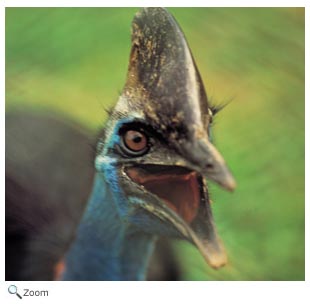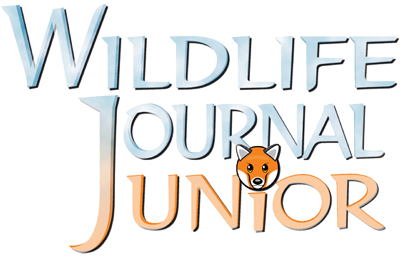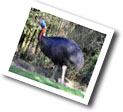 There are three living species in this family. Cassowaries are found in rainforests in Australia, New
Guinea,
and surrounding islands. There are three living species in this family. Cassowaries are found in rainforests in Australia, New
Guinea,
and surrounding islands.
They are around 6.5 feet tall and weigh up to 130 pounds. They have long legs, long necks, and rounded heads. They have long black feathers and blue and red featherless necks. Cassowaries have a casque on the top of their heads. Two species have wattles that hang from their necks. Females are usually larger and more brightly colored than males. Cassowaries run at speeds of up to 30 mph and jump to heights of five feet. If a cassowary is threatened, it kicks out and attacks with its powerful legs and sharp, dagger-like claws. The female cassowary lays 3-8 eggs. The male incubates the eggs for 50-60 days and cares for the chicks. The cassowary eats mostly fruits, but it also eats insects, small mammals, amphibians, and reptiles. World Status Key US Status Key
Additional InformationKey: Cassowary Dwarf Cassowary - Casuarius bennetti Dwarf Cassowary - Casuarius bennetti Northern Cassowary -Casuarius unappendiculatus Southern Cassowary - Casuarius casuarius Southern Cassowary - Casuarius casuarius |
|||||||||||||||||||||||||

